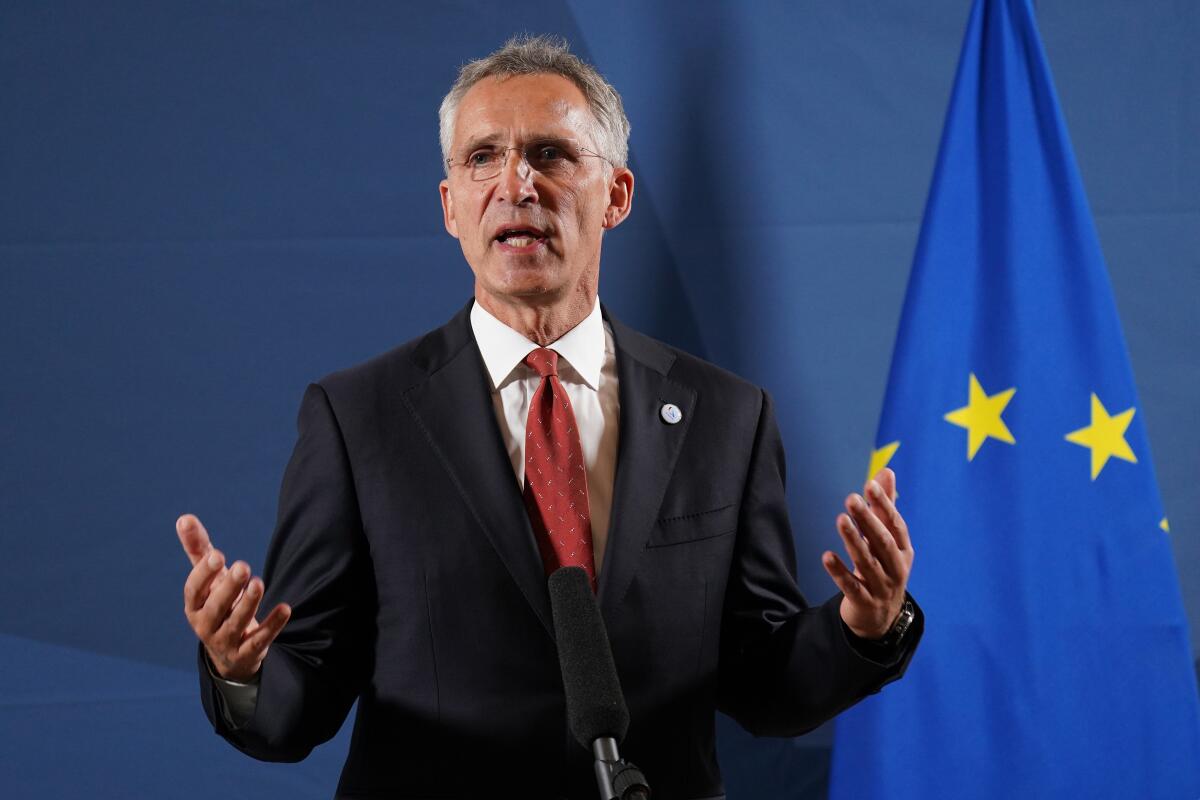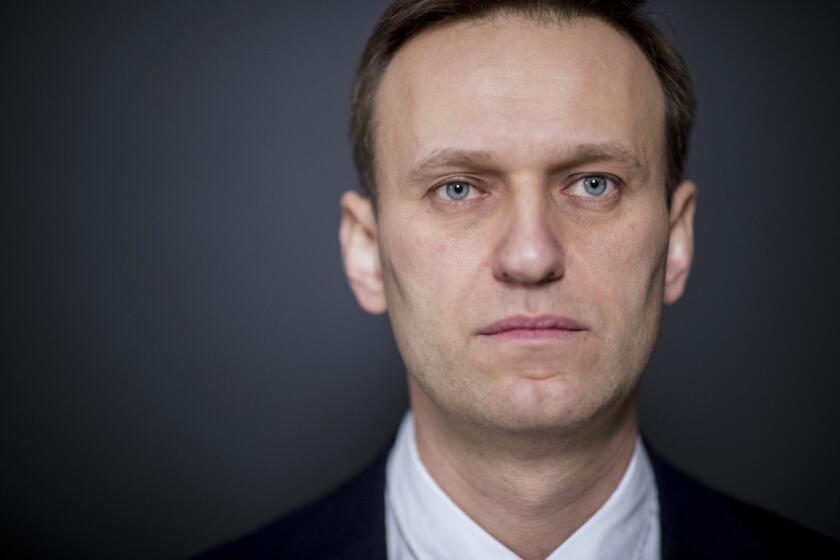NATO demands investigation into poisoning of Russian opposition leader Alexei Navalny

- Share via
BRUSSELS — NATO Secretary-General Jens Stoltenberg on Friday condemned the “appalling assassination attempt” on Russian opposition politician Alexei Navalny and said Moscow has “serious questions” to answer about the alleged poisoning.
Navalny, a Kremlin critic and corruption investigator, fell ill on a flight to Moscow on Aug. 20 and was taken to a hospital in the Siberian city of Omsk. He has been in an induced coma in a Berlin hospital since he was flown to Germany for treatment more than a week ago.
German authorities have said that tests showed that he had been poisoned with a chemical nerve agent from the Novichok group. British authorities previously identified the Soviet-era Novichok as the poison used on former Russian spy Sergei Skripal and his daughter in England in 2018.
“There is proof beyond doubt that Mr. Navalny was poisoned using a military-grade nerve agent from the Novichok group. The use of such a weapon is horrific,” Stoltenberg, a former prime minister of Norway, said after chairing a meeting of NATO ambassadors, during which Germany briefed its allies on developments.
“Any use of chemical weapons shows a total disrespect for human lives and is an unacceptable breach of international norms and rules. NATO allies agree that Russia now has serious questions it must answer,” he told reporters.
Stoltenberg said Moscow must cooperate with the international chemical weapons organization in “an impartial, international investigation” and provide information about its Novichok program.
The attack on Alexei Navalny — at least the sixth such attempt against a Russian dissident in the last five years — has provoked international condemnation on a scale not seen since the poisoning of former double agent Sergei Skripal.
After the attack on the Skripals in the English city of Salisbury in March 2018 — on the soil of a member of the 30-nation alliance — NATO withdrew the accreditation of seven staff members at Russia’s diplomatic mission to the alliance and rejected the applications of three others. No such action was announced on Friday.
Russian President Vladimir Putin’s spokesman has brushed off allegations that the Kremlin was involved in poisoning his most determined critic. Moscow said Thursday that Germany had not provided it with any evidence of what caused Navalny’s illness.
More to Read
Sign up for Essential California
The most important California stories and recommendations in your inbox every morning.
You may occasionally receive promotional content from the Los Angeles Times.














